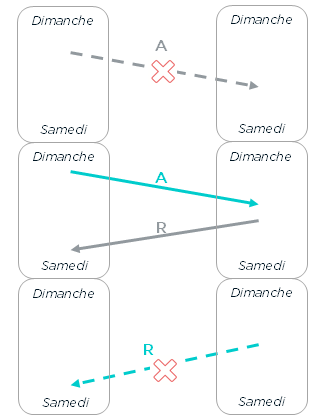We’re starting to take an interest. We’re even starting to put it into practice. But what exactly is it?
Revenue Integrity is a branch of Revenue Management in its own right. A branch that is little known and little represented in the industry. As its name suggests, Revenue Integrity’s mission is to ensure income integrity, i.e. the consistency of the entire commercial chain, from price definition to invoice collection, including the loading of prices into reservation systems, the correct application of pricing and contractual conditions, and compliance with the sales recommendations made by the Yield department.
In other words, Revenue Integrity ensures that the revenue actually collected is in line with the revenue that could theoretically be collected, and that the product sold at a given time has been sold, invoiced and collected at the right price and with the right pricing conditions. The expected gains are high: up to 3% of Turnover.
What is Revenue Integrity?
The story begins, as is often the case, in the airline industry. In the 1980s, with the liberalisation of airspace in the United States, and under the impetus of Delta Airlines, airlines began to vary prices dynamically in order to make the most of demand in an aggressive competitive environment. They invented Revenue Management.
The next 10 years saw an exponential growth in the number of prices. By the end of the 90s, Air France had more than 12 million prices on the machine. With sometimes complex pricing rules due to extensive segmentation.
Mass tourism and the democratisation of business travel have led travel agencies to circumvent these pricing rules to ensure that bookings are made at the best price. The expansion of the range pricing on offer and the diversification of distribution have made commercial processes more complex and exacerbated malfunctions. Manual control became impossible.
Faced with a revenue drain that was becoming colossal, the airlines got their act together. Revenue Integrity was born.
What are the advantages of Revenue Integrity?
The benefits of this approach are numerous. While the initial focus was on ensuring the correct application of prices for distribution, particularly when tickets were issued manually, the scope of Revenue Integrity has been greatly extended.
In the airline industry, for example, with the detection of jet cruisers (see box). But its scope is also beginning to extend to other sectors of the industry: hotels, tourist residences, cruise operators and theme parks. The aim is to ensure that discounts, commission rates, cancellation or no-show penalties, recommendations for closing prices by the Yield, sales channels or length of stay, compliance with contractual terms and conditions, the correct application of rules on the cumulation of special offers or handling fees, the supervision of commercial gestures, the abusive use of options, etc., are properly applied.
Revenue Integrity now covers the entire marketing chain. It identifies errors and corrects them. It rectifies invoices, checks, measures and encourages good practice, as part of an optimisation rather than a policing approach.
The expected benefits go far beyond the recovery of Turnover, which is often pure margin.
It’s a practice that tends towards excellence in commercial practices, requiring processes to be documented, standardised and controlled. It’s not necessarily a question of tightening the rules, but of enforcing them. Even if it means relaxing them when a pricing or contractual condition is inapplicable or unsuitable, permanently violated because it is outside the market.
In a period of crisis, Revenue Integrity makes it possible to increase Turnover on a constant commercial perimeter. Rather than seeking out new sales territories, the aim is to recover more Turnover from the same volume of business.
It’s a virtuous circle, one that generates profits and improves processes… so why deprive yourself?
So tomorrow, why not you? With N&C.
The process consists of a « business » customer buying two low-cost « leisure » return tickets straddling 3 weeks. Then they throw away the first and last coupons. This allows them to make the return trip during the week for a cheaper fare than a « business » ticket and get round the Sunday Rule.
Revenue Integrity solved the problem by adding a pricing condition: the obligation to use the coupons in sequential order.
Keywords: Revenue Integrity, Revenue Management, Turnover, Pricing, Yield
